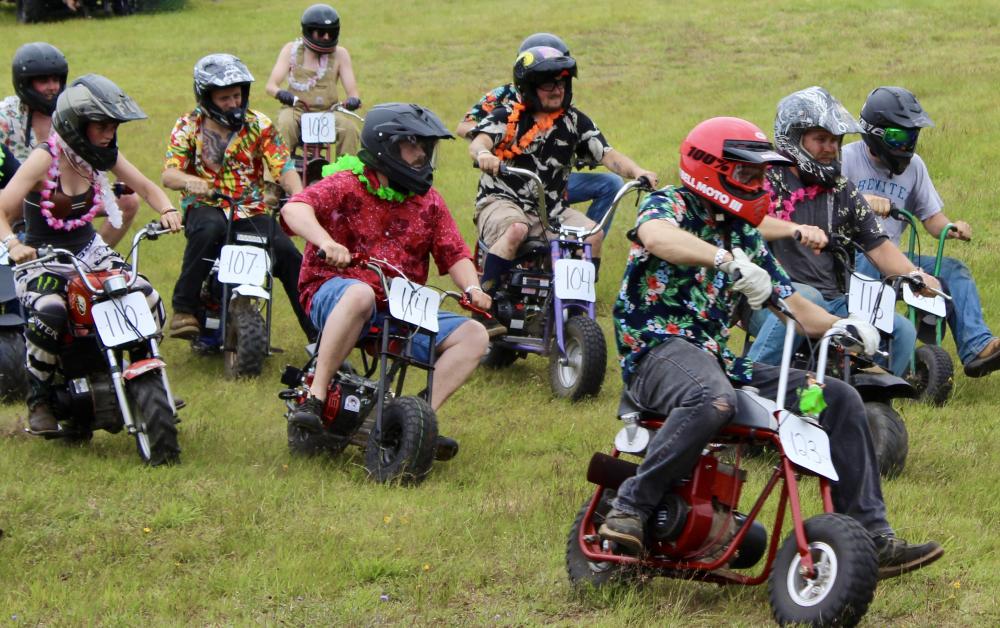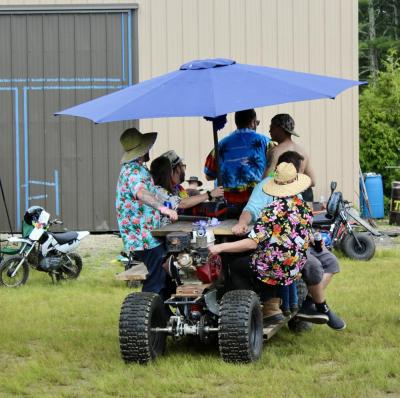Minibike massacre: tikis, tread marks and teamwork
There was competition, community and a motorized picnic table. All were on display at the 12th annual Goma’s Minibike Massacre at 45 N. Carver Road on Saturday, June 24.
“Most of us are competing against one another, but it’s still a family atmosphere,” said second-year competitor Mike Kearney.
Founder Andy Rinta explained that what began as a small minibike race with friends has evolved into a much larger annual competition that financially supports fellow riders in need.
“Twelve years later, and it’s this,” Rinta said, gesturing to the crowds.
Now, people are traveling from all over the East Coast to join the community.
“You never feel out of place,” said Kat Gibson of West Virginia. Gibson, along with her husband Brenden and 2-year-old son Levi, drove 11 hours to race at Goma’s.
This was the first time coming for Levi, but his parents have been competing for the past six years. Despite being an amateur, Levi was excited to take part in the fun.
“As soon as the bikes start revving he’s pumped,” said Gibson, “We had to force him to nap.”
Minibikes were not the only vehicles on the course. Karts, trikes, quads and even a quad-based picnic table were all driven during the festivities.
The portable picnic table was designed and built by Ricky Buckley, who combined old quad parts with the familiar dining area.
Buckley described his process, saying he “had the quad and the metal and [he] just kinda figured it out and built it.”
The motorized table could quickly maneuver around the event, although it was not used in any of the races.
“You can move everywhere,” said Buckley. “Everyone else has the tents but we have this umbrella that can move around with us.”
The event consisted of six races: slow ride, kids’ race, karts and trikes, classic, big tire and unlimited.
Every year, the proceeds from the minibike massacre are donated to a fallen motorcyclist, said Rinta. Following a motorcycle accident in May 2022, the organization donated to Shaun Melendy of West Bridgewater. Melendy became the first patient to have an upper-limb bionic prosthesis with a maintained connection to his brain and muscles, which allows him to control the prosthetic as if it were his natural hand.
“Send it forward,” Rinta said. “Everyone that comes here, they get it. Everyone does their share.”




















